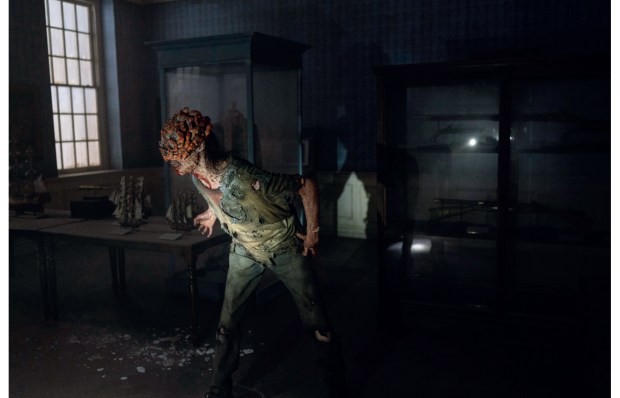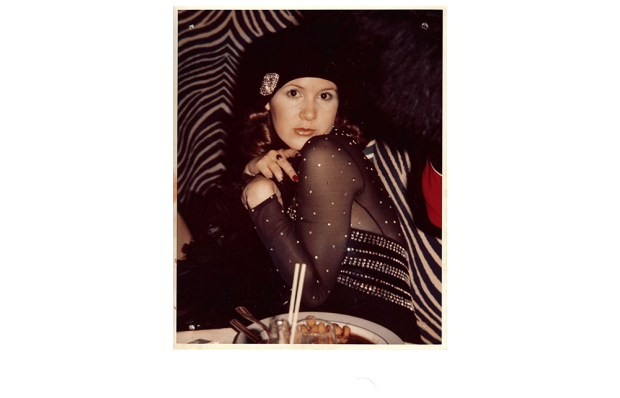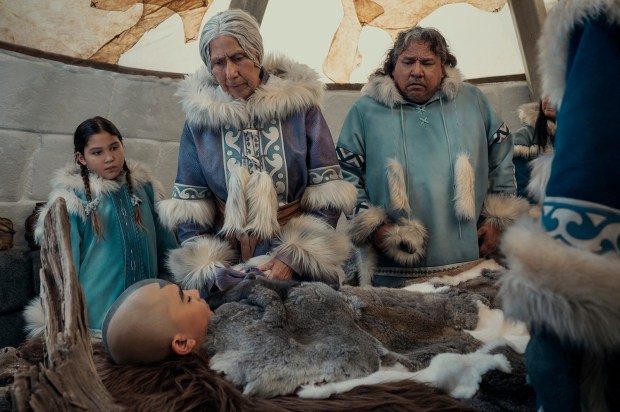It’s a terrible thing for a TV critic to admit but I just don’t know what to make of Britannia, the new Sky Atlantic drama set during the Roman invasion of Britain, scripted by Jez Butterworth, starring a top-notch cast including David Morrissey, Zoë Wanamaker and Mackenzie Crook, and heavily touted as the next Game of Thrones.
Is it really in the Thrones’s league? I’d say not. You remember how Thrones started, all those seasons ago: the scouting party in the creepy frozen wood; the dead child with milky-blue glowing eyes; the shockingly draconian punishment meted out by Ned Stark to the party’s sole survivor. Within the first ten minutes it was all there: the gnawing tension, the ‘anyone can die’ cruelty and horror. But perhaps most important of all was the absolute seriousness. Here was a swords-and-sorcery epic determined never to sell itself short through flippancy or self-parody.
Britannia, on the other hand, can never stop smirking at its own irreverence, its awkwardness of tone, its defiant inauthenticity. Yes, it begins with an actual historical invasion led in AD 43 by the general Aulus Plautius, but everything else is up for grabs, including the landscape of southern England. The coastal shots are filmed in Wales, the sylvan interiors — featuring a craggy Celtic fortress built around a lake that’s a very un-English shade of blue — were shot in the Czech Republic.
These topographical infelicities aren’t a dealbreaker. But they are an odd choice for a series scripted by a writer who, thanks to plays such as Jerusalem, has become arguably Albion’s greatest, maddest celebrant since William Blake. ‘This is us! This is where we came from! Aren’t we mad? Aren’t we great?’ he seems to be telling us. Yes. So why shoot it somewhere so recognisably not where we came from?
Then there’s the language. No one expects the characters to speak in Celtic or Latin — though the Druids have been given a special, weird tongue — but Butterworth is at such pains to make everything so colloquial and modern and kid-friendly that you feel you could almost be watching an episode of Merlin. ‘Wow!’ says the pubescent-girl, Arya Stark-wannabe character. ‘I’ll get me torque,’ a Britannic princeling says with an almost-knowing-grin to camera. ‘Fuck off back to Rome!’ his Dad tells an envoy. There’s lots of first-class swearing in Thrones too, of course, but it’s there to make it more earthy and real, not to remind you that this is all a fantastical pastiche and you’re not meant to take anything too seriously.
It’s harder to fault Butterworth on the Ancient Britons — the Druids especially — because very little is known about them. In fact, of the latter the only eyewitness accounts are by Cicero, who met a single Druid who came to Rome, and Julius Caesar, whose stories about 20-year training courses and human sacrifice may well have been heavily embellished for propaganda purposes.
Butterworth has naturally taken full advantage of this. His Druids are weird, heavily scarred and tattooed — emaciated barely human creatures with huge, acid-head pupils, resembling a cross between Gollum and the crusties at a mid-1990s Goa trance rave. They scamper like baboons between cairns of human skulls and suck on hallucinogenic bongs and have visions and practise arcane rituals.
Meanwhile the Ancient Britons, as luck would have it, are proto-feminists, with a lot of the girls at least as good at war fighting as the men (some with bow skills to match Legolas’, others capable of beating Roman legionaries in sword fights: imagine!), and are not only hot, with fabulous breasts, but feisty and articulate too with tremendous leadership skills and charisma far greater than that of most of the men. Lots of stupid critics will put a red tick by this with the marginal scrawl: ‘Strong female characters.’ I’m not complaining; just noting.
No doubt, as the series progresses we’ll get so into the characters — the hate triangle between Morrissey’s Roman general and the two rival chieftains played by Wanamaker and Kelly Reilly; the light-relief subplot involving the Arya-ish girl and her smelly, God-possessed, outlawed-Druid guardian; Mackenzie Crook channelling pagan demons — that it all becomes part of our weekly entertainment furniture.
Till then, what we’ve got to keep us going is the mash-up of all mash-ups: The Eagle of the Ninth meets The Wicker Man meets Sláine (the Celtic barbarian from 2000 AD) meets King Lear meets Apocalypse Now and the Morte d’Arthur at Woodstock, with Donovan’s ‘Hurdy Gurdy Man’ archly chosen as the soundtrack. As my historian chum Tom Holland rightly notes, this is a drama which, if you want, you could easily watch in a state of fuming pedantry. Or you can do what I plan to do, which is put my critical faculties on hold, fire up the carrot chillum, and enjoy the crazy trip.
Got something to add? Join the discussion and comment below.
Get 10 issues for just $10
Subscribe to The Spectator Australia today for the next 10 magazine issues, plus full online access, for just $10.
You might disagree with half of it, but you’ll enjoy reading all of it. Try your first month for free, then just $2 a week for the remainder of your first year.














Comments
Don't miss out
Join the conversation with other Spectator Australia readers. Subscribe to leave a comment.
SUBSCRIBEAlready a subscriber? Log in